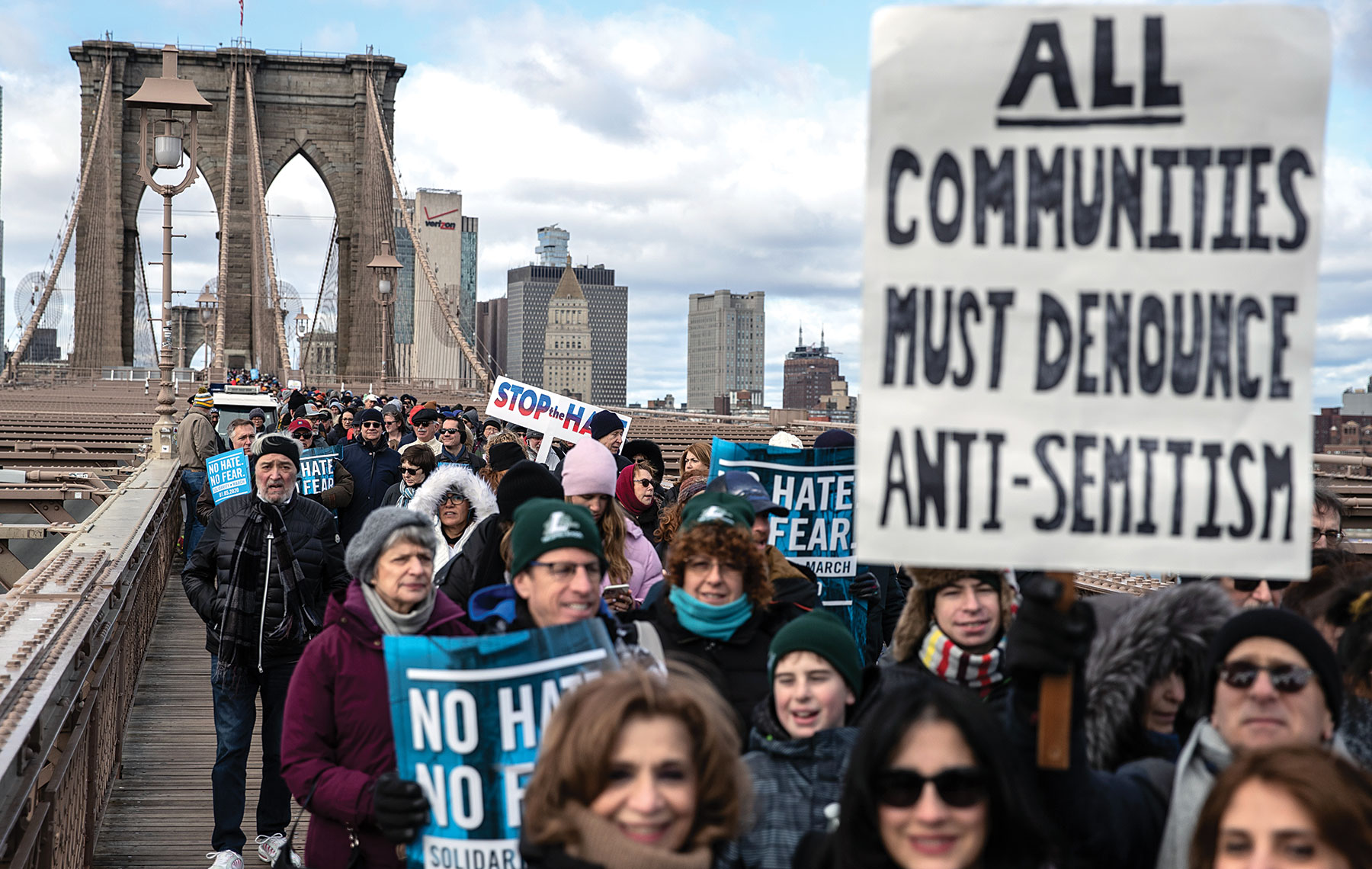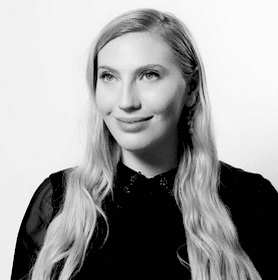
The recent “No Hate, No Fear” march brought together 25,000 people, who took to the streets of Brooklyn, and likely was the most massive demonstration on behalf of Jewish safety in modern history. However, the event was extraordinary not just because of its size, nor even its ability to unite Jews across the religious and political spectrum — despite our notorious culture of intracommunity disagreement.
What really made the “No Hate, No Fear” event monumental was that in these past three years, no one has wanted to march with the Jews.
The Women’s March, which is the largest single-day protest in the history of the United States, went from spectacle to debacle because of its leaders’ refusal to disassociate with notorious anti-Semites. Rhetoric from the march’s co-chairs inflamed this controversy: Linda Sarsour told 95% of American Jews they could not be feminists; Tamika Mallory responded to anti-Semitism allegations by claiming she had the same enemies as Jesus; Bob Bland scapegoated an Islamophobic attack that killed 51 on the “American Jewish Establishment.”
By the 2019 incarnation of the Women’s March, countless Jewish women did not feel like they could join the crowd, even if it was rallying around their rights.
When it came to excluding Jewish activists, the Women’s March was no lone wolf.
In 2017, a march for racial justice was planned on Yom Kippur, making it near impossible for observant Jews — even the many who experience racism as well as anti-Semitism — to join in. Given this decision was made less than a month after white nationalists overtly rallied against Jewish Americans in Charlottesville, this was “grave and hurtful oversight on our part,” admitted its organizers.
This pattern continued as local movements isolated LGBTQ Jews, particularly queer women. In 2017, Jewish lesbians were tossed out of the Chicago Dyke March for carrying a Pride flag with a Star of David on it. Why? The image, which has an emblem of faith that dates back thousands of years, reminded the March’s organizers of an Israeli flag.
After Jews across the country were horrified, the organizers tweeted, “Zio tears replenish my electrolytes,” using an explicitly anti-Semitic slur coined by leaders of the KKK. Then, as if starring in a parody of an out-of-touch activist stereotype, they campaigned for $5,000 for a “self-care retreat.”
In these past three years, no one has wanted to march with the Jews.
The Chicago SlutWalk, which advocates against rape culture, stood in solidarity with its local Dyke March instead of Jewish survivors of sexual assault and also banned similar Jewish symbols. In response to the latter’s controversy, the walk retweeted claims that the “Magen David was always a Zionist symbol and could not be claimed as a symbol of Jewish pride outside of the context of Zionism.”
After backing off its initial denunciation of the most recognizable Jewish symbol, SlutWalk still ostracized Jewish activists. The organizers went so far as to cover up marchers who wore Jewish pride shirts and carried signs with the image of a woman wearing a Star of David necklace with an umbrella.
This pattern carried into 2019, when the Washington, D.C., Dyke March also banned rainbow flags with a Star of David on them. The organizers argued the most recognizable symbol of queer Judaism looks too much like Israeli flags; therefore, they are just a symbol of “violent nationalism.”
The same behavior greeted 2020. Amid anti-Semitic violence in Brooklyn and the same day as the “No Hate, No Fear” march, an anti-war rally in New York City became a tirade against Israel. While the protest was billed as advocacy for peace with Iran, one speaker made a point to call out the “racist monstrous state that sits on the land of Palestine that is known as Israel.”
This rhetoric crosses the line from criticism of the Jewish state into anti-Semitism by demonizing Israel and making it the boogeyman in an unrelated conflict. The demonstration was a sharp reminder that others always will scapegoat the Jews, whether it is for people murdering us or others.
In these foggy waters of inclusion, the “No Hate, No Fear” march is a lighthouse. The protest is a radical act of rebellion. In a time where many see Jews as sitting ducks, this rally was the beacon of light that kept us moving, paddling toward a better shore.
Jews have begged other marches to disassociate with those who demonize us. There’s a reason why every time Jews are excluded or outright removed from a feminist, pro-LGBTQ or anti-racist protest, there is an uproar: We want to be there. We want to champion gender equality, queer rights, and fight against police brutality, white supremacy and systemic racism.
Our Jewishness does not exclude us from wanting these causes to come to fruition. We are the dykes, women and victims of white nationalism. We need these movements just as much as the activists who refuse to march beside us. That is why — despite this pattern of rejection — Jews keep showing up to these spaces and for marginalized people. Not only do we love them, we are them.
The “No Hate, No Fear” march broke the cycle of Jews being the latchkey children of social justice movements. For the first time, Jews stopped asking social justice movements to march for us or pleading for permission to march at all. We just got out there and marched.
Jews are done asking for a seat at the table. We are building our own.
Ariel Sobel is a screenwriter, filmmaker and activist.






















 More news and opinions than at a Shabbat dinner, right in your inbox.
More news and opinions than at a Shabbat dinner, right in your inbox.